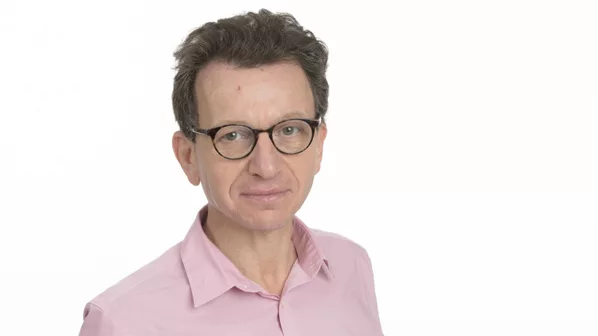ESAU17: “Approaching male fertility problems as a sign of more general disease”

For two days in November, Malmö will be welcoming experts on andrology from all over the world for the 10th Meeting of the EAU Section of Andrological Urology. This meeting is the first of its kind in several years, organised due to an increasing interest in andrology among urologists.
We spoke to local organiser Prof. Aleksander Giwercman (Malmö, SE), who is also a member of the ESAU board. “We’ve seen an increase in the number of attendees at the ESAU meetings that are held at the Annual EAU Congress every year. We thought the time was ripe for a dedicated meeting so that we could spend two whole days discussing andrology-related urological topics.”
Giwercman is Professor in Reproductive Medicine at Lund University, with special focus on male reproductive function. He is also senior consultant in andrology at the Reproductive Medicine Centre, Skane University Hospital in Malmö.
Prof. Giwercman mostly treats male patients with fertility problems and/or sex hormone deficiency. He also deals with young men coming in for fertility preservation before potentially sterilising medical treatment, for instance as a result of cancer.
Male fertility
“One of the main topics to be discussed in Malmö will be the urgent need for changing the routines for the management of the male in infertile couples,” Prof. Giwercman explains. “We need to change our routines since male fertility problems should be considered as sign of a general disease which needs additional attention on top of helping the couples with becoming parents.”
“However, there will also be other important sessions, like those on testicular cancer, the management of erectile dysfunction and ejaculatory problems as well as the issue of testosterone replacement therapy.”
Recently, a lot of public interest was raised with a report on falling sperm count in recent decades. “That paper on declining sperm count certainly received a lot of public attention but, in fact, does not contain any new information. It is not necessarily going to be a ‘key topic’ but will surely be discussed.”
The relationship between andrology and urology is one that Giwercman is clear on: “I think that the andrological topics will more and more get a prominent role on the urological agenda. Andrology is an important part of urology and the growing understanding of the close association between andrological and other urological problems will bring more attention to this medical field.”
“We’ve balanced the scientific programme of ESAU17 to suit ‘new beginners’, younger urologists who are starting to specialise in andrological topics, but also to appeal to experts in the area. Basic aspects of andrology will be mixed with more recent and cutting-edge developments in the field.”
Regional collaboration
ESAU17 can rely on the cooperation of Lund University and the wider ReproUnion cross-border collaboration. Giwercman: “The medical faculty of Lund University is highly involved in organising the meeting. The wider region is also where ReproUnion operates, a collaboration between Danish and Swedish regions that researches reproductive medicine.”
ReproUnion is a cross-border collaboration between 13 clinical and research units within the Capital and Zealand Regions of Denmark and the Skane Region in Southern Sweden, dealing with reproductive medicine. The total budget for years 2016-2018, is €15 million funded by EU Interreg V (50%), Ferring Pharmaceuticals (10%), Copenhagen and Lund Universities as well as the three Regions.
“Its main aim is to stimulate research and to develop patient management. Our ambition is to make this region become world-leading in overcoming infertility and in meeting future demands of managing and preventing infertility problems. ReproUnion’s vision is to strengthen the research capacity within infertility as well as establish a common Reproductive Medicine Centre. The Reproductive Medicine Centre is based on a multi-disciplinary concept including research & development, education & career development, treatment & prevention. It is our goal to extend the collaboration to include other research units – domestic and from abroad.”
“One of the important accomplishments of ReproUnion is the close collaboration with EAU/ESAU on establishing joint postdoc research training programmes aiming to promote research in the field of andrology. Many of the speakers at ESAU17 are affiliated with ReproUnion and will no doubt share the latest results and future plans of the project.”
“The end of November is close to Christmas, and visiting Nordic cities at that time of the year is a very special experience. The meeting will be held in the very centre of Malmö in walking distance to the city’s main attractions and its railway station. A trip to Copenhagen Airport only takes 20 minutes and Copenhagen itself is only half an hour away.”
Registration for ESAU17 is still open! The Early Registration Fee is available until September 15th. Abstract submission is open until 29 September.



